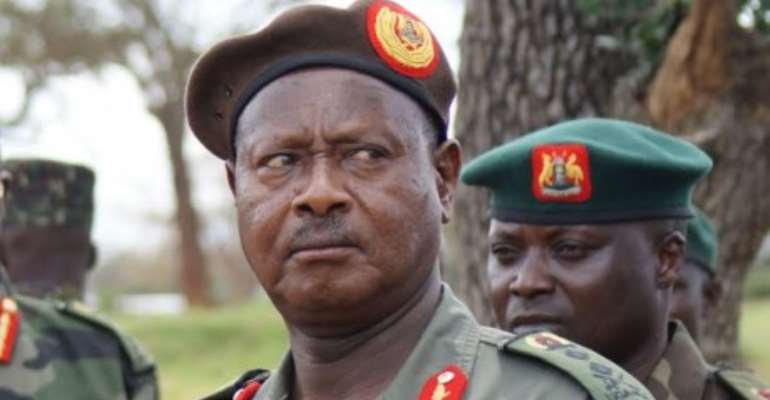Ugandan Opposition: What Went Wrong?

The political guillotining of ministers and incumbent MPs illustrates the extent to which Ugandans have embraced the concept of change. There was, therefore, every reason for the opposition, which provides the alternative governance to tap into this opportunity with a better outcome than it happened.
But even keeping all factors constant, Dr Kiiza Besigye, if announced the legitimate new president tomorrow, will hardly successfully end his term peacefully. Parliament, practically, the real fulcrum of power, has once again landed in hands of the ruling NRM—with over 300 MPs of the 458 it comprises. They would certainly tame him if not control or even impeach him. His party FDC, the biggest opposition side fielded a huge MP candidature of about 260 members. By this size of candidates to gain only less than 40 (15%) successful MPs is good fodder for debate. Other parties like Jeema and CP are at the extreme end with zero percent and in between are DP and UPC.
What therefore made us lose?
In a wider perspective, something went awesome. To avoid it next time we must understand it now. It can’t be a disconnect between us and the electorates, for we are undergoing similar social challenges. It’s neither about message packaging for similar themes of poverty, service deliveries and governance recurred across the board. It was hence things alien: greed, resource constrains and to good extent impunity.
Greed inhibited us from thinking beyond the present and deprived us of good planning that leads to success. It was bad planning that led to failure. Lord mayor Erias Lukwago proves a good learner in this aspect. He won the top city position in 2011 under awkward planning and lost it in a blink of an eye. It’s unlikely to easily happen this time. He has the city authority ‘parliament’ under his embrace—with dominant opposition leaning councilors.
If we contemplated the future, we would circumvent the resource huddle—by collectively as opposition mobilizing substantial financial support that nearly came in before the untimely ‘death’ of TDA. We would have our primaries dominate the countryside political terrain as or even better than NRM did. Our failure of this offered NRM a lee-way—a process in which our own supporters picked interest and participated. If NRM has mastered the application of money as a political tool, its best practiced during its primaries. During then, there are no legal restrictions as in national campaigns. In the case of Busiro North where I run as MP for Jeema for example, the eventual ‘winner’ had splashed money during primaries in all corners of the constituency. It did not require him either any leadership experience or a single credential to prove his ability. It was money. Among the seven candidates in the race he and the FDC one were actually the only novices.
What were voters’ benchmarks for change?
That they wanted change at any cost did not mean any one available. But the tragedy of it is that they lacked awareness of the role of the office to which a candidate would be voted. That‘s why our good message packing was wasted. They would patiently listen and actually appreciate the oratory. At end, they demanded for ‘water or soda’ before they hand you a whole five year job!
Some voters up to now construe leadership the Luganda proverb way: akuwa obukulu aba akuwadde kulya—implying governance is about private gain for leaders. Before therefore, they would hand you this privilege of kulya, you must have made them kulya also. That was their benchmark. It is how those with loads of sacks of money made their way through. The money splash practice was, with impunity extended in the national election proper despite being an irregularity. And this largely explains the huge new NRM entrants into the 10th parliament.
Action
As opposition we must prepare for opportunities—such as the current positive attitude for change. We can only tap into this by thinking beyond today; by avoiding greed about individual remittances of those elected for their parties. We must focus on the real center of power—the 11th parliament.
But for the civil society movement, there is a critical role to conduct in next five years: Cause massive awareness of the role of particular office bearers. Make people appreciate to demand services not favors of those voted into public offices. They are not for worship as ‘honorable, counselor, his excellence.’ These titles are actually misleading. They make public servants assume the opposite role of idols to be fed —by way of extorting public funds. NGOs must initiate the process of making office bearers feel the due diligence of being people’s servants. Propose to deal away with useless titles.
